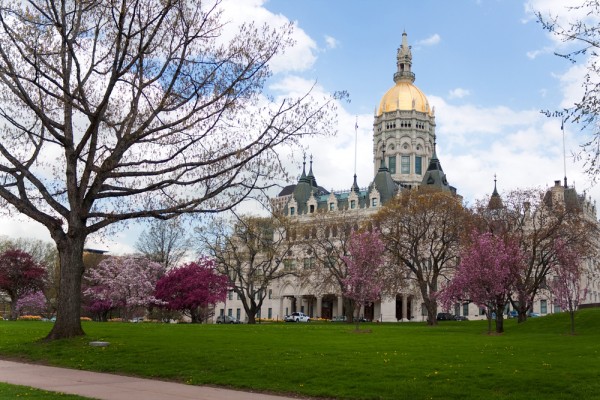Connecticut Bill Could Derail Progress Made with Public Finance

 Credit: ARENA Creative / Shutterstock.com
Credit: ARENA Creative / Shutterstock.com
After the 2004 scandal, which found then-Governor John G. Rowland guilty of accepting free vacations, unpaid flights and pro-bono construction work from various state contractors, Connecticut became a trailblazer of publicly financed campaign reform with the 2005 Clean Elections bill. Thus far, the bill has helped rid the state of its former derogatory title: “Corrupticut.”
The Citizen’s Election Program (CEP), created by the bill, prohibited special interest and PAC contributions, emphasizing grassroots campaigning instead. It placed limitations on funds candidates could receive from organizations as well as the amount of their own money they could allot to their campaign. It created a public finance program so alluring that 77% of candidates opted in during the three election cycles it has been in place. All current state representatives gained their seats through public financing.
The CEP requires candidates to receive a certain amount of money from a specific number of small donations ($5-100) from voters in their district before the State kicks in the rest of the funds. For instance, State senate candidates must raise at least $15,000 from 300 residents to be eligible.
Demos, a public policy think-tank, published a study of Connecticut’s CEP program in 2012. Candidates had only to receive a certain number of donations before being fully funded. This has allowed them to dedicate more time to talking to constituents instead of fundraising. The lack of lobbyist and interest group money also forced candidates to be far more vested in their constituents’ problems.
The 2012 election unnerved a number of Democratic incumbents who were outspent considerably by their challengers (think Linda McMahon vs. Chris Murphy). Instead of reacting by passing a measure to curtail the influence of independent expenditures, Connecticut Democrats decided to pass a bill that would instead increase campaign contribution caps, pulling considerably more money into the State's elections.
The bill will also deregulate campaign ads (therefore permitting an unlimited increase in negative campaigning) and allow candidates who are already funded through CEP to receive considerably more outside money, which could shift their obligations back towards the realm of big businesses and lobbyists.
“As soon as you start to water down the public finance system you lose the ability to combat the big money in politics,” said Mijin Cha, Senior Political Analyst at Demos.
In an op-ed piece for the Connecticut Post, State Representative Tony Hwang had this to say about the bill:
"We are traveling down a road that will erode the ideals of representative governance and enable the unsavory influence of special interest money back into state elections. To allow for unlimited organizational contributions and to compound that error by acerbating negative campaigning -- that is the wrong road and a disappointing path that our state has chosen."
After the last seven years of more accountable elections and a seemingly well-intentioned campaign finance system, it looks like Connecticut politics will be changing for better or for worse.



